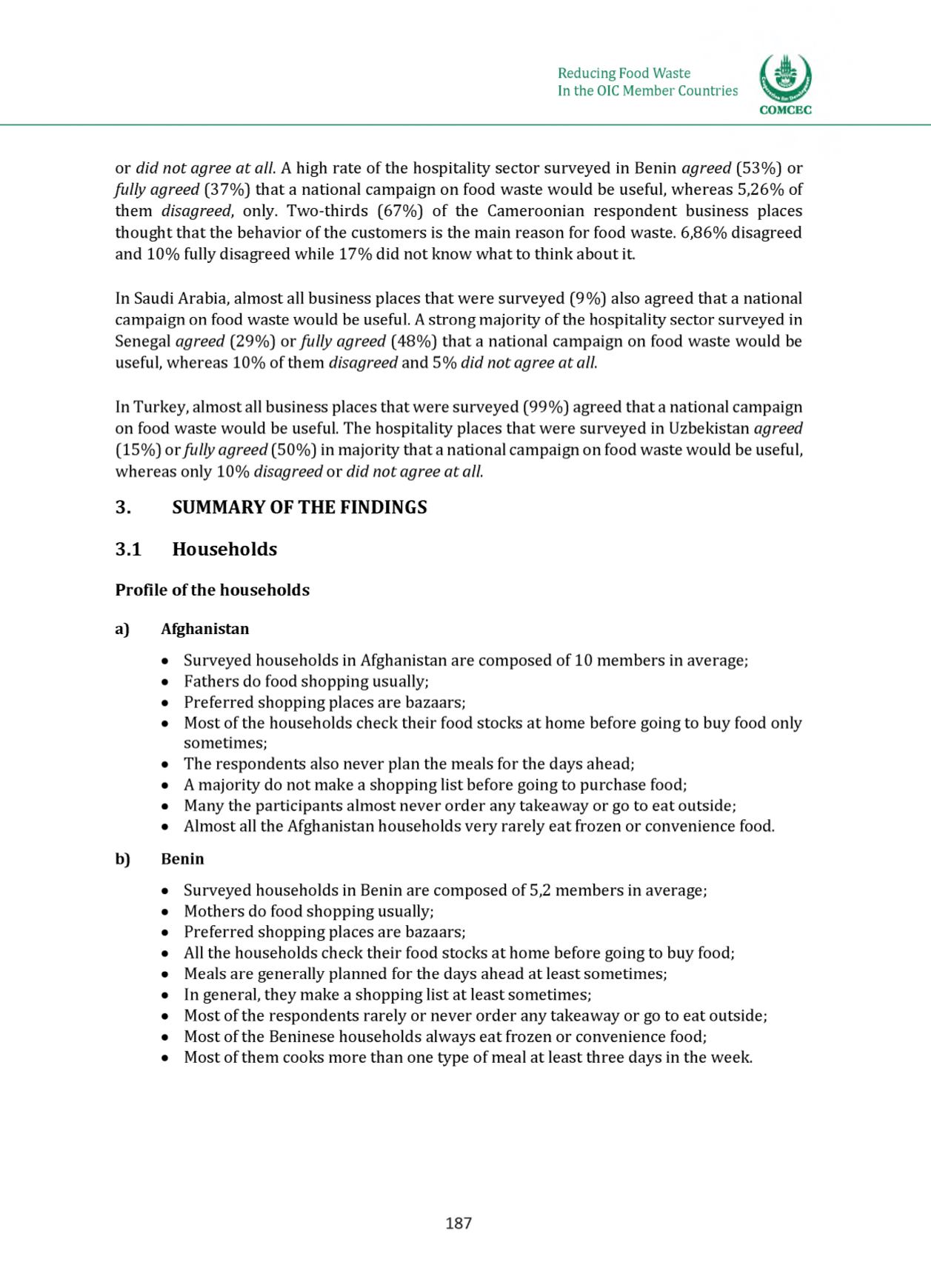

COMCEC
Reducing Food Waste
In the OIC Member Countries
or
did not agree at all.
A high rate of the hospitality sector surveyed in Benin
agreed
(53% ) or
fully agreed
(37% ) tha t a national campaign on food waste w o u ld be useful, whereas 5,26% of
them
disagreed,
only. Two-thirds (67% ) o f the Cameroonian respondent business places
though t th a t the behavior o f the customers is the m a in reason for food waste. 6,86% disagreed
and 10% fully disagreed while 17% d id no t know w h a t to th in k abou t it.
In Saudi Arabia, alm ost all business places tha t were surveyed (9% ) also agreed tha t a national
campaign on food waste w ou ld be useful. A strong majority of the hospitality sector surveyed in
Senegal
agreed
(29% ) or
fully agreed
(48% ) tha t a national campaign on food waste w ou ld be
useful, whereas 10% of them
disagreed
and 5%
did not agree at all.
In Turkey, alm ost all business places tha t were surveyed (99% ) agreed tha t a national campaign
on food waste w ou ld be useful. The hospitality places tha t were surveyed in Uzbekistan
agreed
(15% ) or
fully agreed
(50% ) in majority tha t a national campaign on food waste w ou ld be useful,
whereas only 10%
disagreed
or
did not agree at all.
3.
SUMMARY OF THE F IND INGS
3.1 H o u s e h o ld s
Profile of the households
a)
Afghanistan
• Surveyed households in Afghanistan are composed of 10 members in average;
• Fathers do food shopp ing usually;
• Preferred shopping places are bazaars;
• Most of the households check their food stocks a t home before going to buy food only
sometimes;
• The respondents also never p lan the meals for the days ahead;
• A m ajority do no t make a shopping list before going to purchase food;
• Many the participants alm ost never order any takeaway or go to eat outside;
• A lm ost all the A fghanistan households very rarely eat frozen or convenience food.
b)
Benin
• Surveyed households in Benin are composed of 5,2 members in average;
• Mothers do food shopp ing usually;
• Preferred shopping places are bazaars;
• All the households check their food stocks at home before going to buy food;
• Meals are generally planned for the days ahead at least sometimes;
• In general, they make a shopping list at least sometimes;
• Most of the respondents rarely or never order any takeaway or go to eat outside;
• Most of the Beninese households always eat frozen or convenience food;
• Most of them cooks more than one type o f meal at least three days in the week.
187
















